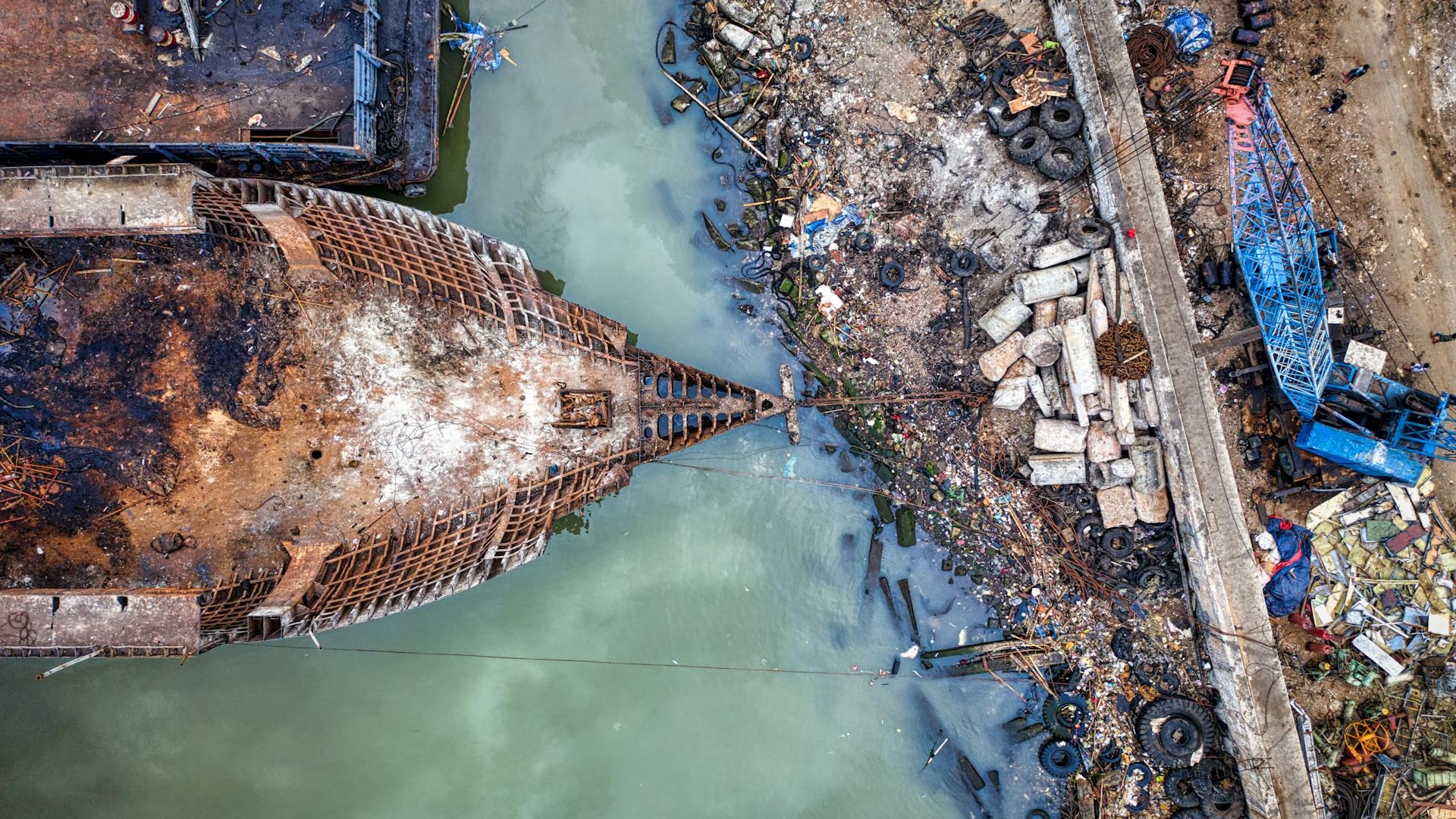
Can We Afford to Ignore Dirty End-of-Life Practices? Together, Let’s Drive Change from the Foundation
No longer can we afford to turn a blind eye to the dirty end-of-life practices that have lingered in the shadows. The time has come to cast a discerning gaze upon the entire life cycle of yachting, daring to envision a sustainable future that demands a radical departure from the norms of the past: change from the Foundation!
In the world of yachting, the pursuit of sustainability extends beyond the sleek lines of a vessel’s hull and the efficiency of its propulsion system. As conscientious yachting enthusiasts and manufacturers alike awaken to the imperative of minimizing environmental impact, the spotlight is turning toward the entire life cycle of yachting, from the inception of raw materials to the vessel’s eventual end-of-life considerations.
Setting Sail Responsibly: Sourcing Raw Materials
The journey toward sustainability begins at the very foundation of yacht construction—the raw materials. Mindful yacht builders are increasingly scrutinizing the sourcing of materials, opting for responsibly harvested wood, recycled metals, and eco-friendly composites. This deliberate choice not only contributes to a reduced ecological footprint but also fosters a close-knit network with local suppliers, supporting sustainable practices within a microeconomy.
In particular, a renaissance of natural materials such as hemp and flax is emerging as a beacon of sustainability in yacht construction. These often-forgotten materials bring inherent benefits, including lightweight durability and a significantly lower environmental impact compared to traditional alternatives. As yacht builders incorporate hemp and flax composites into their designs, they not only diversify the material palette but also contribute to the revitalization of these eco-friendly options within the maritime industry.
Crafting Green Dreams: Sustainable Yacht Production
The production phase of a yacht is a critical juncture where sustainability principles can be woven into the fabric of the vessel. From eco-conscious manufacturing processes to the adoption of energy-efficient technologies, yacht builders are striving to minimize the environmental toll of production. Innovations such as 3D printing, which reduces material waste, and closed-loop water systems further exemplify the industry’s commitment to green manufacturing practices, nurturing a symbiotic relationship with the local microeconomy.
Fueling the Voyage: Responsible Fuel Sourcing and Consumption
The sustainability odyssey continues with the selection and sourcing of fuels. Yachts traditionally rely on fossil fuels, but the industry is evolving toward greener alternatives. The responsible procurement of biofuels and the exploration of hybrid and electric propulsion systems are transforming the seascape, fostering a connection with local energy providers and encouraging the growth of a sustainable energy microeconomy.
Enter the realm of not-so-sexy waste: biogas. Derived from organic waste materials, biogas presents an innovative solution for powering yachts sustainably. This often-overlooked energy source, composed of decomposable organic matter like agricultural residues and wastewater, can be harnessed to produce clean and efficient biofuel. By turning less glamorous waste into a valuable energy resource, yachting enthusiasts can actively contribute to reducing their carbon footprint while navigating the open seas.
Ports of Call: Sustainable Refueling Practices
Every stop at port presents an opportunity to reinforce a commitment to sustainability. Yacht owners and operators are exploring eco-friendly refueling options, such as shore power and biofuel availability. Ports themselves are evolving to accommodate the growing demand for sustainable refueling infrastructure, creating a seamless synergy between responsible yachting and the global network of maritime hubs, enhancing the resilience of local economies.
Navigating the Blue Expanse: Eco-Conscious Operation
While cruising the open waters, sustainable yachting extends beyond fuel choices. Yacht operators are optimizing routes for fuel efficiency, utilizing advanced navigation technologies, and embracing practices that minimize disturbance to marine ecosystems. The commitment to eco-conscious operation translates into a harmonious coexistence with the vast and delicate environments through which yachts gracefully glide, promoting environmental awareness within the local communities they encounter.
A Sunset on the Horizon: End-of-Life Considerations
Even as a yacht enjoys years of exploration and luxury, its life cycle culminates in a responsible approach to its end. Forward-thinking yachting enthusiasts are considering the recyclability of materials, decommissioning processes, and potential repurposing options for their vessels. Sustainable yacht design now includes planning for a vessel’s dignified retirement, ensuring that it leaves a positive legacy for the environment and the microeconomies it has touched.
In Conclusion: Navigating a Sustainable Yachting Future
The path to sustainable yachting involves a holistic approach, from eco-friendly raw materials like hemp and flax to green production, responsible refueling, mindful navigation, and end-of-life considerations. The yachting industry is committed to environmental stewardship, recognizing its impact on local microeconomies.
To safeguard our oceans, stakeholders must collectively adopt Life Cycle Assessments (LCAs). LCAs evaluate a product or process’s environmental impact across its entire life cycle, providing valuable insights for informed decision-making. As we embark on this era of eco-conscious yachting, embracing LCAs is pivotal for transparency and accountability.
Join us in charting a course toward a sustainable future. Each stakeholder’s commitment to LCA becomes a vital part of this journey, contributing to responsible exploration and luxurious living that respects our oceans. Through a shared dedication to sustainability and the application of LCAs, yachting and environmental responsibility can coexist harmoniously, paving the way for a brighter, greener maritime future.
Image:
Jakarta, Indonesia

